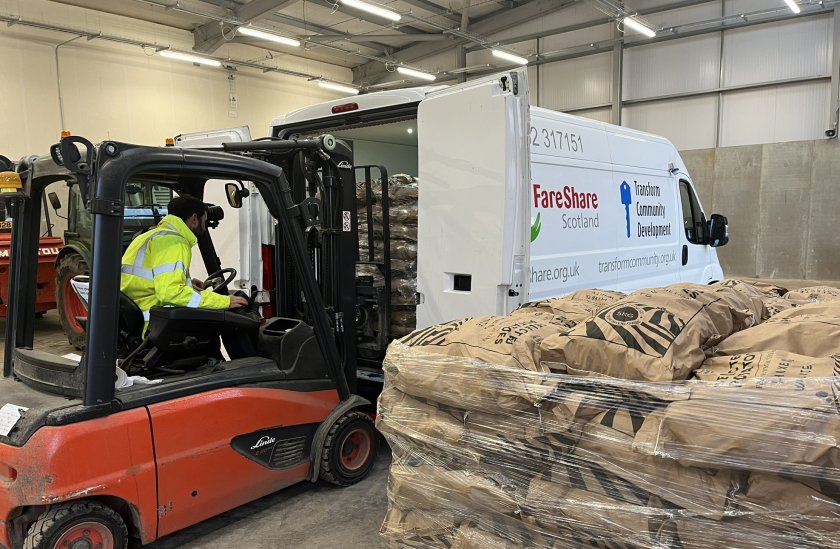UK agricultural scientists donate 8,000kg of potatoes to food charity

The James Hutton Institute has donated nearly 8,000kg of potatoes - worth an astonishing 932 bags - to a food charity helping communities in need.
The institute, which is home to the UK’s leading potato research centre, donated the locally grown potatoes ahead of the festive season.
The potatoes were grown as part of a large-scale field trial, undertaken earlier this year at James Hutton’s Balruddery Farm, near Dundee.
The field trial included a range of well-known varieties, which when harvested were bagged separately and donated to the charity FareShare.
The varieties are among 100 types of potatoes that agricultural scientists at the institute have developed over the last century.
Continued research aims to produce potatoes which can handle global threats posed by climate change, as well as pests and disease.
Euan Caldwell, head of farms at the institute said: “I am so pleased that this harvest will not only inform our learning but will benefit so many people who need it most this winter."
He added: “The challenges posed by the climate and nature crises for potatoes are significant and threaten this global crop.
"We have extensive experience in potato breeding at the Hutton and our work is critical in developing potatoes which are more resilient to climate change, and which require less input and are thus more sustainable longer term."
FareShare has redistributed 3,725 tonnes of excess food across Scotland in the past year – the equivalent of 8.9 million meals, benefitting some 66,000 people.
Clare O’Keefe, commercial officer at FareShare, said: “We are hugely grateful to the James Hutton Institute for providing such a generous donation to FareShare for the second year in a row.
“The food distributed is used by many different types of community groups, including food pantries, community cafes, after-school clubs, and homeless shelters.
"We are seeing demand for food increase, and we are expecting that to grow further over the coming winter."








